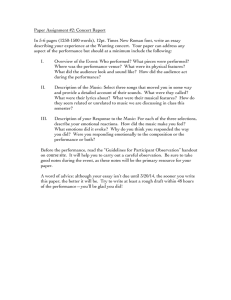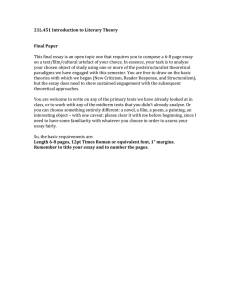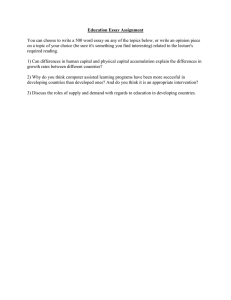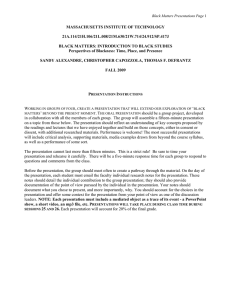21A.201/21L.013/21M.013 ESSAY 1 Macbeth
advertisement
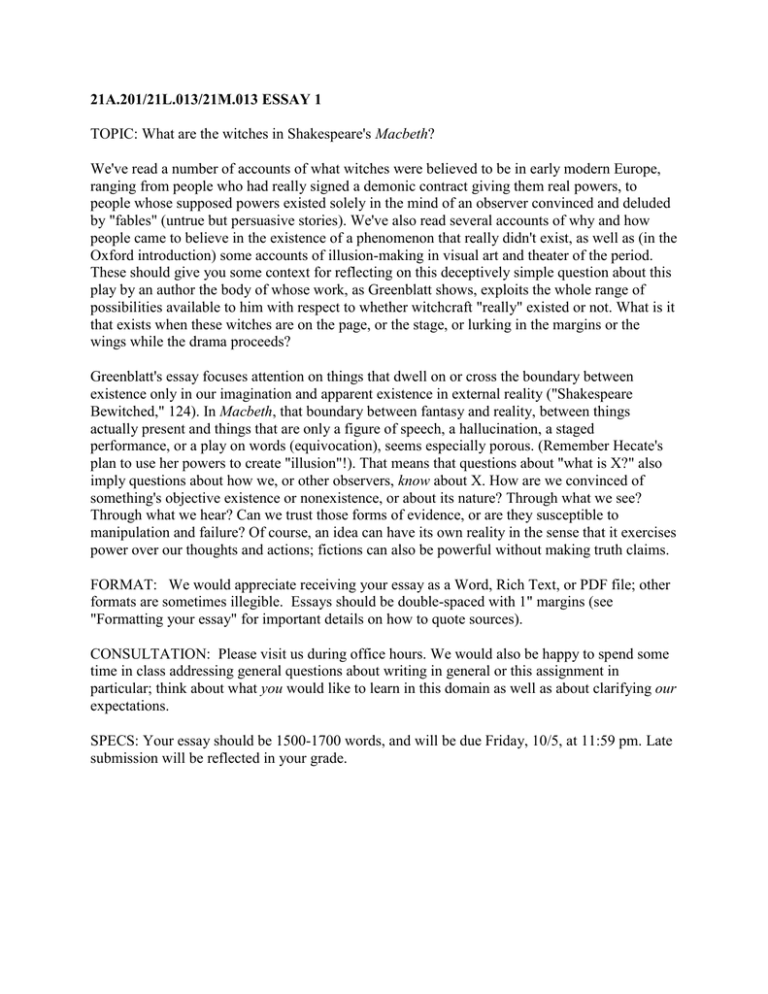
21A.201/21L.013/21M.013 ESSAY 1 TOPIC: What are the witches in Shakespeare's Macbeth? We've read a number of accounts of what witches were believed to be in early modern Europe, ranging from people who had really signed a demonic contract giving them real powers, to people whose supposed powers existed solely in the mind of an observer convinced and deluded by "fables" (untrue but persuasive stories). We've also read several accounts of why and how people came to believe in the existence of a phenomenon that really didn't exist, as well as (in the Oxford introduction) some accounts of illusion-making in visual art and theater of the period. These should give you some context for reflecting on this deceptively simple question about this play by an author the body of whose work, as Greenblatt shows, exploits the whole range of possibilities available to him with respect to whether witchcraft "really" existed or not. What is it that exists when these witches are on the page, or the stage, or lurking in the margins or the wings while the drama proceeds? Greenblatt's essay focuses attention on things that dwell on or cross the boundary between existence only in our imagination and apparent existence in external reality ("Shakespeare Bewitched," 124). In Macbeth, that boundary between fantasy and reality, between things actually present and things that are only a figure of speech, a hallucination, a staged performance, or a play on words (equivocation), seems especially porous. (Remember Hecate's plan to use her powers to create "illusion"!). That means that questions about "what is X?" also imply questions about how we, or other observers, know about X. How are we convinced of something's objective existence or nonexistence, or about its nature? Through what we see? Through what we hear? Can we trust those forms of evidence, or are they susceptible to manipulation and failure? Of course, an idea can have its own reality in the sense that it exercises power over our thoughts and actions; fictions can also be powerful without making truth claims. FORMAT: We would appreciate receiving your essay as a Word, Rich Text, or PDF file; other formats are sometimes illegible. Essays should be double-spaced with 1" margins (see "Formatting your essay" for important details on how to quote sources). CONSULTATION: Please visit us during office hours. We would also be happy to spend some time in class addressing general questions about writing in general or this assignment in particular; think about what you would like to learn in this domain as well as about clarifying our expectations. SPECS: Your essay should be 1500-1700 words, and will be due Friday, 10/5, at 11:59 pm. Late submission will be reflected in your grade. MIT OpenCourseWare http://ocw.mit.edu 21M.013J / 21A.113J / 21L.013J The Supernatural in Music, Literature and Culture Fall 2013 For information about citing these materials or our Terms of Use, visit: http://ocw.mit.edu/terms.
